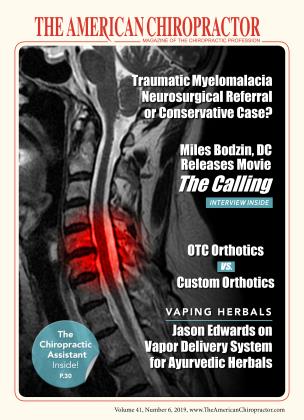3 Bad Things OTC Insoles Do to Your Body
PERSPECTIVE
Stephanie Smith
Over-the-counter (OTC) orthotic insoles are foot supports made from various materials, including foam, leather, and plastic, that are designed to go inside your shoe and provide some type of relief. These insoles can be bought at local pharmacies and grocery stores and are popularized by clever branding and packaging techniques. Some insoles are marketed as providing additional comfort, whereas others promise to relieve pain from common conditions like bunions, plantar fasciitis, and arch support issues. Additionally, people can buy OTC insoles for a variety of shoes like high heels, athletic shoes, and boots, so as to seemingly work with every consumer's lifestyle.
Whereas custom orthotics have been a scientifically proven way to overcome pain and discomfort, OTC insoles are dangerous and can cause more harm than help to the body. Many people do not realize their feet can be the cause of their knee, hip, or back pain; however, the feet are the foundation of the body, which helps explain why doctors often pay particular attention to the feet when diagnosing and treating a patient's discomfort. More important, orthotics are typically a great solution and addition to someone's lifestyle, but patients must be cautioned against self-diagnosing and treating through OTC solutions.
These are the top three bad things that OTC insoles can do to your body, plus some advice for avoiding them and getting better treatment.
Provide Ineffective Support
Every person's body is unique. We are of different heights, weights, and have different body compositions. This means that each one of us also has unique feet, with some of us even having two feet that barely seem like distant relatives. Due to each person's specific composi tion, there is rarely ever a one-size-fits-all cure for an is sue. Therefore, when it comes to the feet, customization is key. Using OTC insoles, however, does not provide custom care for a patient's body and cannot provide you with effective support. Ineffective support can lead to increased pain and discomfort, or it can transfer pain to a different part of the body to make the patient think the insoles are working.
There are often scanners inside stores, but these are designed solely to sell products rather than provide treat ment. Don't allow your patients to use these devices. As the healthcare professional, providing a digital foot scan allows you to communicate directly with patients about treatment options, including the use of custom orthotics to treat the rest of the body as well.
Increase Physical Discomfort and Cost You More Money for Treatment
OTC insoles are typically made of inexpensive materials. Therefore, OTC insoles wear down faster than custom orthotics and require replacement more often. The problem is that as OTC insoles wear down, physical discomfort will likely increase. Or, even worse, purchasing the wrong type of OTC insole will create more pain and discomfort for the wearer. Many OTC insoles provide far too much rigidity for our feet and actually make our feet go numb, leading us to believe that our discomfort is cured, when in reality it is simply masked, and leads us to become dependent on an OTC solution for relief, rather than treatment.
When we are experiencing pain or discomfort, our bodies are under stress. Stress also increases from non-physical issues, like financial burdens or other personal problems, which can be time consuming and riddled with uncertainty.
Diminish the Function of Your Foot and/or Ankle
When insoles are not properly prescribed and not uniquely fitted to someone’s foot, it can actually diminish function. The wrong insole can make a well-fitting shoe suddenly too tight, or can redistribute our bodyweight in such a way that although our foot pain is seemingly alleviated, our ankles are sore, or we cannot bend our feet with the same ease. The wrong insoles can also make it difficult for us to run or walk at certain paces. Perhaps most important, wearing the wrong insole can create new injuries due to the impact OTC insoles have on the function of our feet and ankles. Orthotics alter the way our bodies move, affecting how we walk, stand, and absorb shock from the ground. Therefore, ensuring that your patients have proper orthotic support, not OTC insoles, is vital to improving their biomechanical function.
It’s important to remember that no orthotic, OTC or custom, is designed to permanently change someone’s foot. Custom orthotics are designed specifically for an individual’s body and used to stabilize a joint, reduce pain, prevent deformity, adjust posture and positioning, and improve the function of the foot, but, more important, the entire body. Custom orthotics support your adjustments, relieve discomfort, help the patient’s body operate efficiently, and saves stress and money over time.
Dr. Stephanie Smith is currently an Assistant Professor at Virginia Tech in Blacksburg, Virginia. She holds her Doctorate in Communications and Public Relations from Arizona State University. Among other areas, Dr. Smith specializes in content analysis, quantitative methods, and statistical analyses. She has written for medical websites as well as non-profit and educational organizations.
 View Full Issue
View Full Issue






